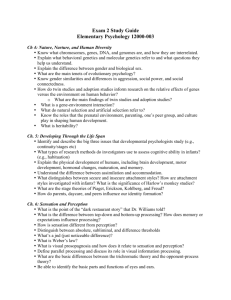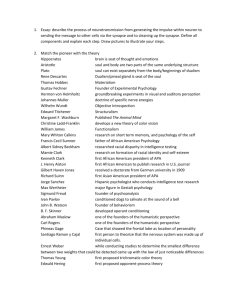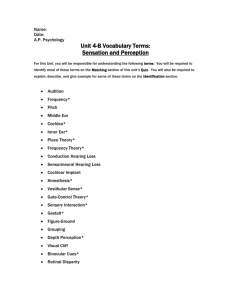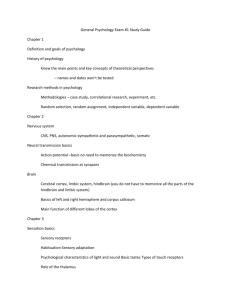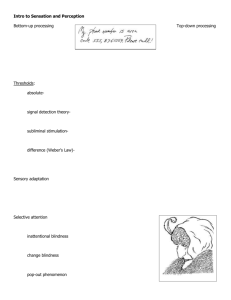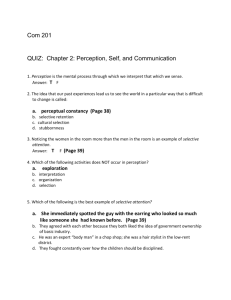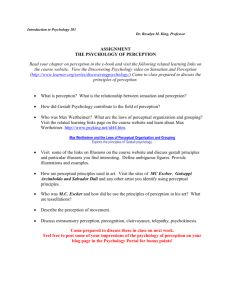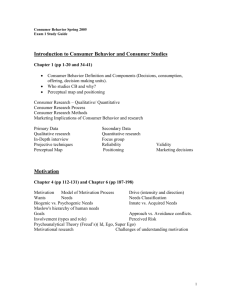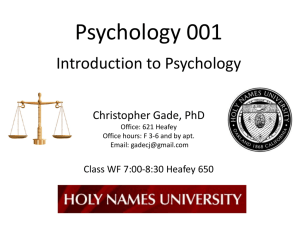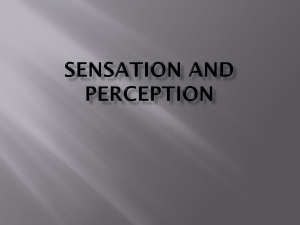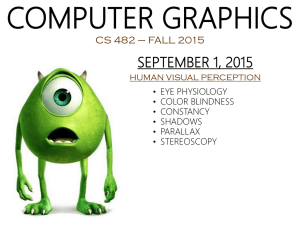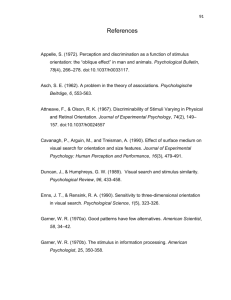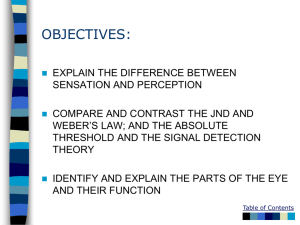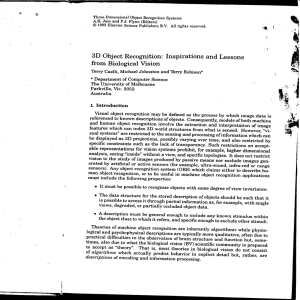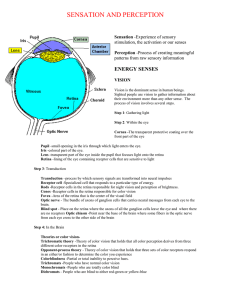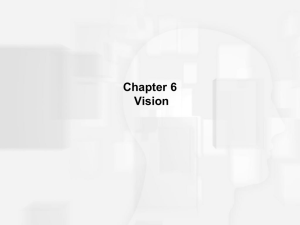Module 16: Vision & Perception
advertisement
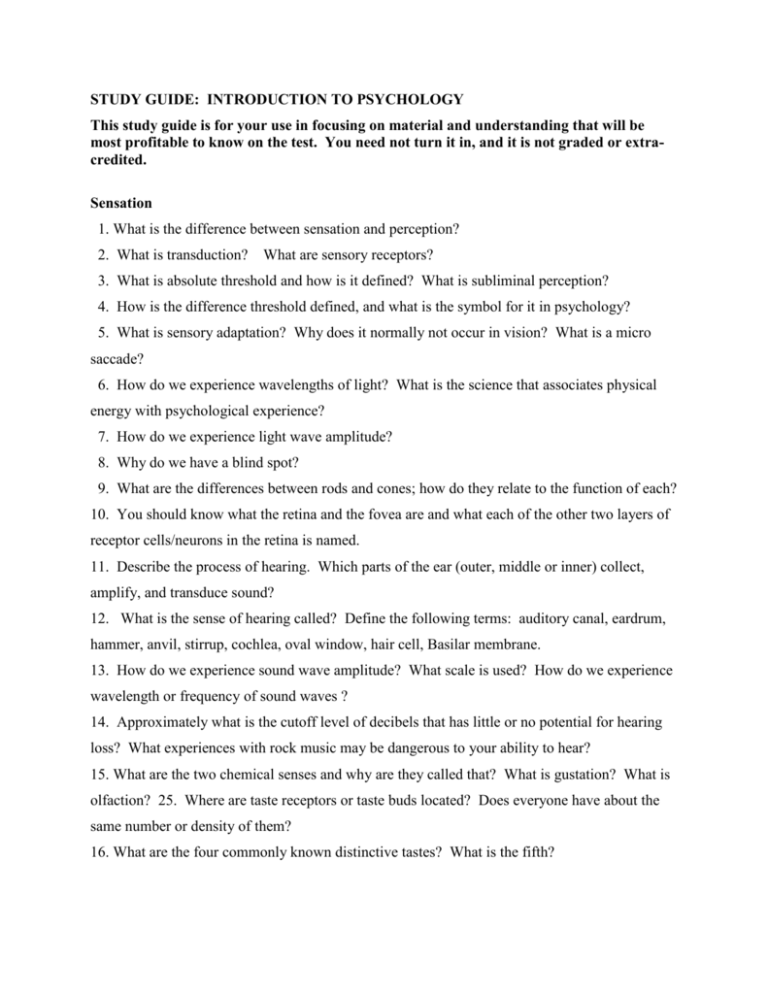
STUDY GUIDE: INTRODUCTION TO PSYCHOLOGY This study guide is for your use in focusing on material and understanding that will be most profitable to know on the test. You need not turn it in, and it is not graded or extracredited. Sensation 1. What is the difference between sensation and perception? 2. What is transduction? What are sensory receptors? 3. What is absolute threshold and how is it defined? What is subliminal perception? 4. How is the difference threshold defined, and what is the symbol for it in psychology? 5. What is sensory adaptation? Why does it normally not occur in vision? What is a micro saccade? 6. How do we experience wavelengths of light? What is the science that associates physical energy with psychological experience? 7. How do we experience light wave amplitude? 8. Why do we have a blind spot? 9. What are the differences between rods and cones; how do they relate to the function of each? 10. You should know what the retina and the fovea are and what each of the other two layers of receptor cells/neurons in the retina is named. 11. Describe the process of hearing. Which parts of the ear (outer, middle or inner) collect, amplify, and transduce sound? 12. What is the sense of hearing called? Define the following terms: auditory canal, eardrum, hammer, anvil, stirrup, cochlea, oval window, hair cell, Basilar membrane. 13. How do we experience sound wave amplitude? What scale is used? How do we experience wavelength or frequency of sound waves ? 14. Approximately what is the cutoff level of decibels that has little or no potential for hearing loss? What experiences with rock music may be dangerous to your ability to hear? 15. What are the two chemical senses and why are they called that? What is gustation? What is olfaction? 25. Where are taste receptors or taste buds located? Does everyone have about the same number or density of them? 16. What are the four commonly known distinctive tastes? What is the fifth? 17. Where are olfactory receptors located? To what structure in the brain do they forward information? Does this go through the thalamus? 18. To what mental functions does smell have a mysterious connection? 19. What types of sensations does the sense of touch include? How is pain induced? 20. What is your largest and heaviest sense organ? 21. What is gate-control theory? 21. What is kinesthesis and what are the receptors for this sense called? Where are they located? 22. What is the vestibular sense and where are the receptors for this located? Perception 23. What is perception? 24. What information do we use to localize sound? 25. Place theory, frequency theory, and volley theory all explain how we hear pitch. Describe each explanation. 26. How is incoming visual information organized? 27. What are feature detectors? 28. According to the Helmholz trichromatic theory, how do we see colors? What are the three primary colors? 29. According to Opponent-process theory, how do our brains process color information? (These are complementary and not competing theories.) 30. What is a gestalt? What is the principle of figure-ground? 31. Describe each of the five perceptual grouping principles (similarity, proximity, closure, continuity, and connectedness). 32. Describe the two binocular cues for depth perception. Describe seven monocular cues for depth perception. What is perceptual constancy? 33. What is the size-distance relationship? What is the Muller-Lyer illusion? How does it depend upon the size-distance relationship according to the carpentered-world hypothesis? 34. What is perceptual set? 35. What is extra-sensory perception (ESP)? What are telepathy, precognition, psychokinesis, clairvoyance (remote viewing)? 36. What is parapsychology? 37. What explanations does psychology offer for paranormal phenomena? Answer: Psychology does Not endorse as a natural human ability. Consider the possibility of trickery. Consider the possibility of misperception, imagination, or intuition. Psychology cannot speculate about the supernatural. 38. Why are psychologists skeptical about ESP? Why do psychologists refuse to endorse ESP as a natural, although unusual human ability?
